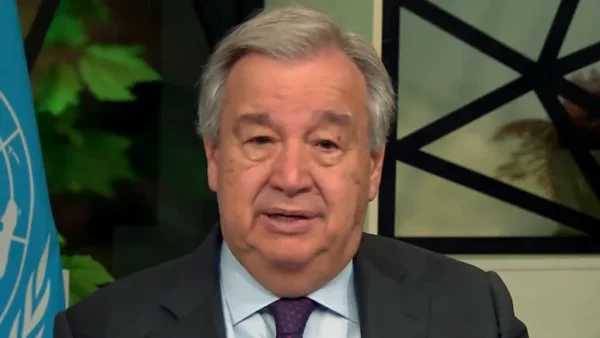World News
UN reports famine worsened by fighting, conflict and climate shocks
The UN Food and Agriculture Organization and the World Food Programme said food insecurity is projected to get worse in 16 “hunger hotspots”.

A severe food crisis is threatening millions of people in vulnerable regions, including the Palestinian territories, Sudan, South Sudan, Haiti and Mali, where populations are facing or near famine, a report released by the UN food agencies said on Thursday.
The report warns that conflict, economic instability and climate shocks – along with reduced funding for emergency food and agriculture aid – are fuelling dangerous levels of food insecurity.
“Urgent, large-scale interventions are needed to prevent the situation in these already vulnerable regions from getting even worse,” it said.
The UN Food and Agriculture Organization and the World Food Programme said food insecurity is projected to get worse in 16 “hunger hotspots” in 14 countries and two territories during the next six months.
The report says Sudan, South Sudan, Haiti, Mali and the Palestinian Territories remain at “most concern”.
Chad, Lebanon, Myanmar, Mozambique, Nigeria, the Syrian Arab Republic and Yemen are classified as “hotspots of very high concern”, where large numbers of people are facing or are likely to face acute food insecurity.
The report warns that “conflict and armed violence remain the primary drivers of hunger in many hotspots, disrupting food systems, displacing populations and impeding humanitarian access.”
FAO and WFP experts believe that escalation of conflict in Sudan is likely to “lead to large-scale displacement, resulting in famine levels likely to persist and increase the number of people in catastrophic conditions.”
This will also worsen the regional humanitarian crisis, resulting in increased cross-border movement into neighbouring countries, primarily Chad, South Sudan, Egypt, Libya, Ethiopia and the Central African Republic.
The UN agencies also stressed that the ongoing conflict in the Palestinian territories has “led to unprecedented needs, including the near-complete displacement of populations and an increased risk of territorial dispossession”. They said that in Lebanon, the escalating conflict situation is significantly increasing the number of people in need of humanitarian assistance and severely affecting the level of acute food insecurity. Since the last report in May 2024, Kenya, Lesotho, Namibia and Niger have been added to the list of hunger hotspots, partly due to the impact of climate extremes.
Beyond conflict, increasing weather extremes and climate variability are exacerbating acute food insecurity in many regions, the report said. La Niña – a natural climate pattern that affects global weather marked by cooler ocean temperatures in the equatorial Pacific – is expected to continue until March 2025, which will have a significant impact on rainfall patterns and temperatures. “Although La Nina may enhance agricultural prospects in some regions, it also increases flood risks in parts of Nigeria, Malawi, Mozambique, South Sudan, Zambia and Zimbabwe,” the report said. The UN agencies warned that without “urgent humanitarian efforts and concerted international action” to address serious constraints and advocate for de-escalating conflicts, further hunger and loss of life is likely in Palestine, Sudan, South Sudan, Haiti and Mali. “Addressing and preventing famine in these regions will require greater investment in integrated solutions that cut across traditional mandates, target the root causes of food insecurity and reduce reliance on emergency aid,” they added.



